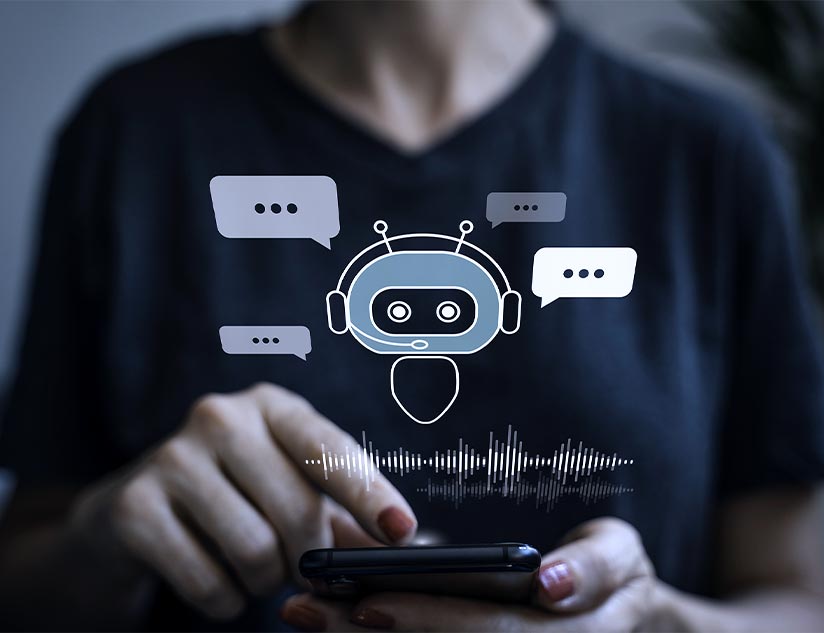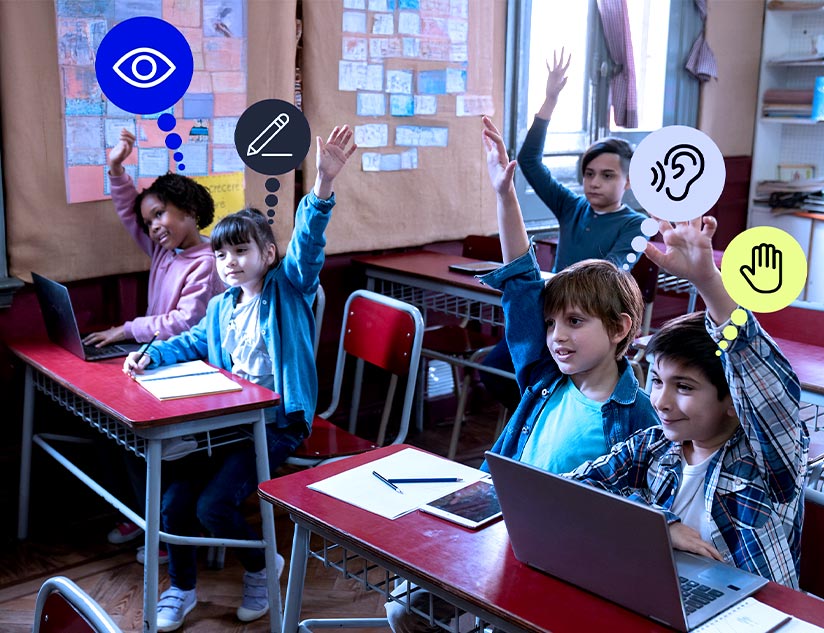Educational institutions and teachers are rapidly adopting artificial intelligence (AI) across the globe for the immense opportunities it presents. Tech-driven tools, such as AI learning assistants, prove instrumental in transforming pedagogy and teaching experiences, and help improve the quality of education delivered. Research suggests that 92% of teachers feel that AI learning assistants effectively address their concerns. This blog dives deeper into how AI in education is changing the lives of teachers and elevating pedagogy and teaching experiences.
The Transformative Power of AI
Artificial intelligence is hailed as the propellor of education 4.0 by the World Economic Forum. While AI-powered elearning tools transform the K-12 learning experience, the technology supports educational publishers and teachers in several ways:
Enhance Course Authoring
A well-created developed course is at the heart of exceptional learning delivery. An AI-powered digital course authoring tool drives digital publishing to accommodate diverse content formats, difficulty levels, and educational activities. This facilitates differentiated instruction across K-12 levels, optimizing learning outcomes and boosting engagement. AI learning assistants recommend explorative resources to fast learners and supplementary material to slow ones to offer dynamically tailored education. These platforms streamline K-12 course creation, encourage multi-format support, simplify the use of assistive technologies, and facilitate content distribution according to individual needs.
Accelerate Lesson Plan Generation
Around 38% of teachers consider lesson plan generation the most important use case of AI in education. K-12 education technology collects immense data about student learning performances, their strengths and weaknesses, and their learning goals. Analytics engines use this data to help teachers plan lessons for the whole classroom as well as individual students. Deep insights allow teachers to ensure that all students in a classroom receive high-quality education that meets individual needs. Basically, enabling them to meet everyone’s needs at scale! Automation saves teachers’ time and AI learning assistants recommend adjustments to methodologies to improve teaching quality.
Assessments Generator and Evaluator
Creating tests and assignments with the help of AI-powered tools has also eased teachers’ lives. About 37% of educators believe this is one of the biggest benefits of the technology. AI course authoring tools allow teachers to include diverse types of digital assessments, such as quizzes, gamified elements, MCQs, descriptive questions, and video-based responses. In addition, digital learning platforms can administer assessments at diverse difficulty levels, depending on students’ individual needs. These, when accompanied by AI-based checking, ensure precision and eliminate human bias, driving fairness in evaluations. Also, K-12 education technology leverages AI-Powered learning assistants to offer immediate personalized feedback. Immediate feedback with detailed insights offers actionables to improve learning achievement.
Personalize Learning Journey and Student Feedback
Personalization is one of the key techniques to improve the accessibility of learning materials. The modifications, such as text-to-speech conversion for visually impaired learners can transform their learning experience and improve their learning outcomes. This supports the educational journey and improves academic achievement. About 73% of students understand the content better with a K-12 elearning platform that offers an AI learning assistant, while 67% learn more efficiently. Student analytics offer deep insights into learning gaps and individual weaknesses to pinpoint the improvements required in the curriculum and adjustments in individual learning paths.
Reduce Administrative Workload
AI in education takes a significant part of the administrative load off the teachers’ plates. K-12 elearning platforms automatically monitor student presence and engagement. AI-powered K-12 content distribution platforms adjust learning paths and assign required modules automatically to meet students’ needs and learning goals. The reduction in administrative workload allows teachers to focus on teaching. Automated assignment evaluations and grading facilitate teachers to offer the required support to students in the time saved. Working with an AI-enabled K-12 education technology platform enhances overall teacher productivity and job satisfaction, while reducing burnout. Education institutions must also focus on building the readiness of educators to use AI learning assistants and achieve exceptional outcomes.
It’s Almost Now or Too Late
The global market size of AI in education is forecast to expand at an astounding CAGR of 47.2% between 2024 and 2030. Publishers in the digital education segment have immense opportunities as platforms for globalized learning and community-based microschooling are in demand across K-12 and higher levels. However, education publishers, educators, and learning institutions must ensure the ethical, equitable, transparent, and responsible use of AI when exploring the opportunities.
According to the World Economic Forum, AI enhances rather than replacing “human-led teaching.” The innovative technology facilitates automation and personalization, reduces administrative workload, and ensures accessibility of quality education for students from disparate backgrounds and different abilities. Education institutions must partner with exceptional K-12 education technology providers to make the most of the opportunities while navigating the challenge of positioning themselves as leaders with AI learning assistants. Speak to the experts at MagicBox to learn how AI-powered digital educational publishing, content distribution, and elearning platforms can help you transform the K-12 teaching-learning experiences.
















